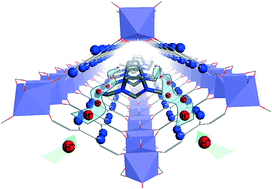Ionothermal synthesis and proton-conductive properties of NH2-MIL-53 MOF nanomaterials†
Abstract
It is a big challenge to construct proton-conductive materials for practical applications operating at high temperatures and low humidity. Herein, we propose an ionothermal strategy for the preparation of highly stable NH2-MIL-53(Al)it nanomaterials with high proton conductivity. The crystalline structure and the direct incorporation of the 1-ethyl-3-methyl-imidazolium ionic liquid within NH2-MIL-53(Al)it are identified by XRD, TG/DTA and IR techniques. The as-prepared NH2-MIL-53(Al)it exhibits a high proton conductivity of 3.0 × 10−5 S cm−1 at 80 °C and low relative humidity of ∼26%.


 Please wait while we load your content...
Please wait while we load your content...